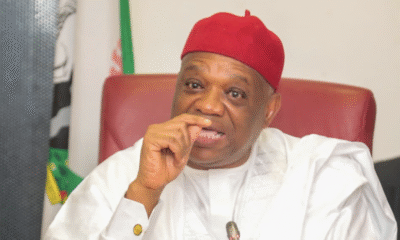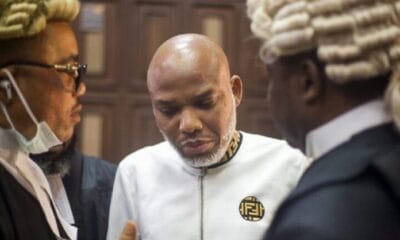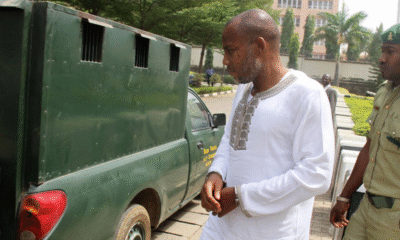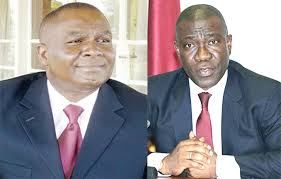Breaking News
Nnamdi Kanu: Sowore-Led Protest Grounds Abuja, Triggers Heavy Security, Gridlock
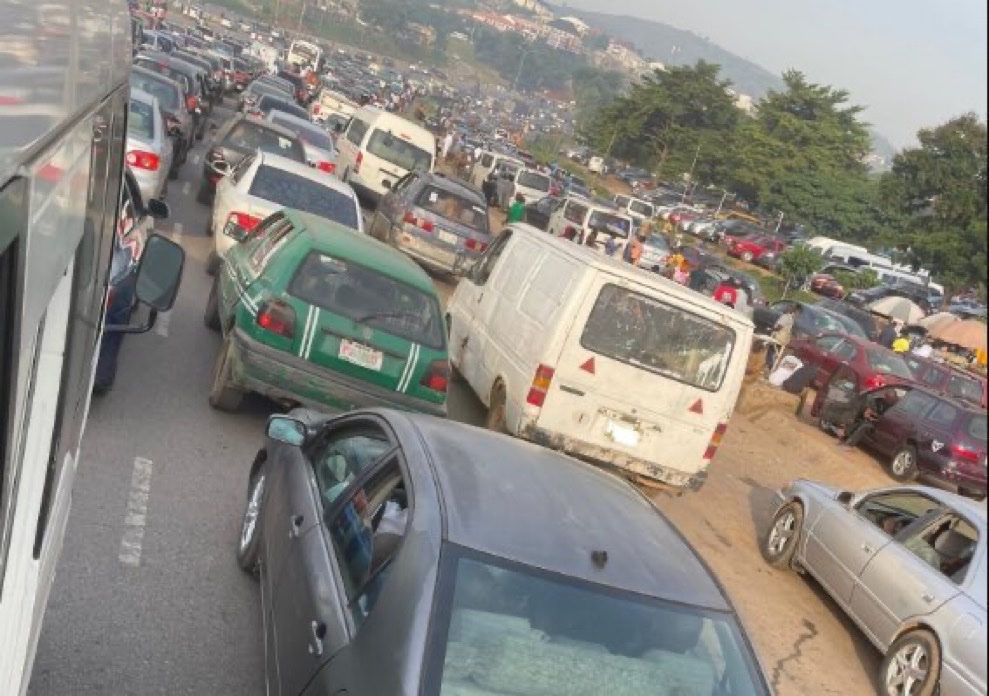
Massive traffic gridlock hit major roads leading into Nigeria’s capital city on Monday as security forces mounted multiple roadblocks to contain protesters demanding the release of the detained leader of the Indigenous People of Biafra (IPOB), Mazi Nnamdi Kanu.
The demonstration, tagged #FreeNnamdiKanuNow, was led by human rights activist and politician Omoyele Sowore, convener of the #RevolutionNow movement.
Protesters stopped midway
Defying repeated warnings from security agencies, Sowore and several others marched toward the Three Arms Zone, which houses the Presidential Villa, National Assembly, and Supreme Court, before they were intercepted and forcefully dispersed by combined operatives of the Nigerian Police, Department of State Services (DSS), and the Guards Brigade of the Nigerian Army.
The protest, which began peacefully, caused massive traffic congestion as security operatives cordoned off major intersections and blocked several entry routes into the city.
Among the worst-hit areas were the Abuja-Keffi Highway, Kugbo–Nyanya Expressway, Mararaba–Nyanya corridor, and the Abuja-Kaduna Expressway.

FCT – Abuja on lockdown
Motorists and commuters spent hours stranded in traffic, with some forced to abandon their vehicles and trek long distances.
A civil servant, Isaac Babalola, told journalists that he was compelled to return home after spending over two hours at the War College Camp in Ushafa.
“The traffic was unbearable. Security operatives were stopping and checking every car going into town. People heading to work were turning back,” he said.
Similarly, several motorists plying the Mararaba–Nyanya axis described the situation as frustrating, saying they were caught off guard by the sudden lockdown.
Security beefed up amid alleged coup plot
The heavy deployment of troops, according to security sources, was part of a broader precautionary measure following intelligence reports linking some groups to attempts to infiltrate Abuja under the guise of protests.
One security source told Daily Trust: “Every motorist entering the City Centre is being screened. This is to separate infiltrators from genuine Nigerians and law-abiding citizens. We can’t afford to allow unrest in the seat of power.”
Another officer hinted that intelligence suggested the protesters were “restrategising” and could mobilise more street urchins to sustain their agitation.
The heightened security presence also comes in the wake of an alleged coup plot involving some detained military officers, prompting stricter checks at the city’s entry points.
Entry points sealed off
Checkpoints were observed at the Zuba, Bwari, and Nyanya entry routes, as well as at Dutse–Sokale and Ushafa, where access to the War College area was completely blocked.
Earlier, security operatives had restricted movement around strategic government institutions, including the Presidential Villa, National Assembly, Force Headquarters, Court of Appeal, and Eagle Square.
A senior security official said the lockdown was necessary “to prevent external aggressors from infiltrating the capital and to keep the protest from escalating.”
While the police and army maintained silence on the incident as of press time, security analysts have urged the government to strike a balance between citizens’ right to peaceful protest and the need to protect national security.
The protest, though short-lived, has rekindled debate over the prolonged detention of Nnamdi Kanu, whose supporters insist he must be released unconditionally, while government officials maintain that his case remains before a competent court.



